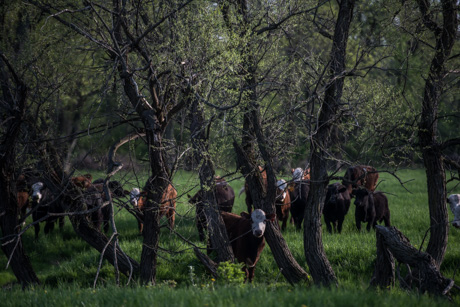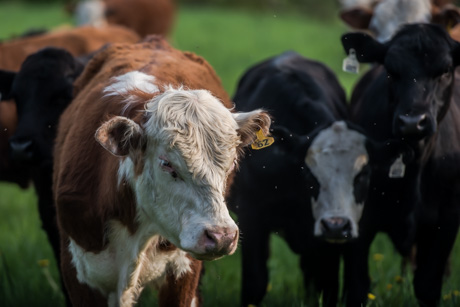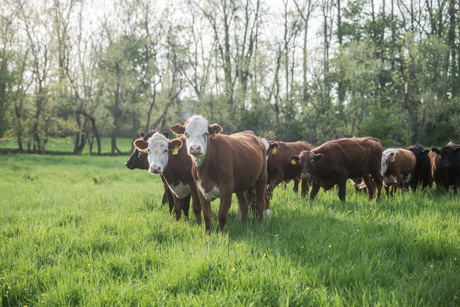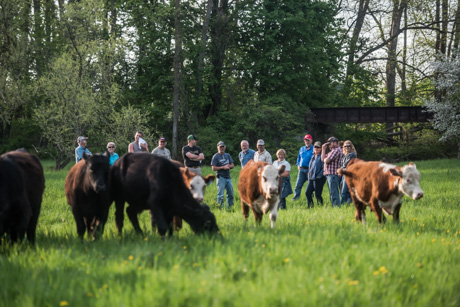Press release:
U.S. Senate Minority Leader Charles E. Schumer and U.S. Senator Kirsten Gillibrand today joined their Senate colleagues in urging United States Trade Representative Robert Lighthizer to continue to ensure Mexico honors its existing trade commitments.
They want Lighthizer to fight back against the EU’s recent proposal to exclusively use common cheese names, like “parmesan,” “feta,” and “asiago” in Mexico.
According to the senators, through a recent trade agreement with Mexico, the EU is seeking to prevent cheese producers from exporting their products using common cheese names or geographical indications.
Schumer and Gillibrand argued that this would be a huge hit to Upstate dairy farmers as they look to continue to export cheese and compete for new markets.
“No matter how you slice it, Upstate New York’s cheese producers could lose a big chunk of their business if the EU successfully convinces Mexico to place geographic restrictions on cheese labeling,” Senator Schumer said.
"From Western New York to the Hudson Valley, cheese production is an important industry in Upstate New York, which is why I'm urging Ambassador Lighthizer to hold nothing back and use every tool in his disposal to protect U.S. cheese producers and ensure that Mexico continues to honor their existing trade commitments."
“This harmful proposed trade agreement between the EU and Mexico could hurt our farmers and rural communities by taking away export opportunities for New York cheese producers,” said Senator Gillibrand, a member of the Senate Agriculture Committee.
“We need to do everything possible to protect and promote New York’s dairy industry, which is already struggling in the face of historically low milk prices and other challenges, and I’m urging U.S. Trade Representative Lighthizer to fight against any proposal that would hurt local cheese producers.”
Schumer and Gillibrand pointed out that Mexico is the largest export destination for American cheese, accounting for virtually one-third of the $1.3 billion in dairy products the United States exported to Mexico last year and that implementing geographic indications on cheeses could devastate New York’s cheese industry.
The senators explained that this is not the first time the EU has tried to claim cheese names based on geographic locations, in the same way, that the EU has argued that champagne can only be sold as "champagne" if produced in the Champagne region of France.
Among the labels sought by EU are muenster, feta, parmesan, fontina, gorgonzola and others. Schumer warned that if the EU succeeds in claiming those names, New York producers will no longer be able to export cheeses with their current names. They would have to export the cheese under a different name, meaning that producers could lose market share they have spent years fighting for.
A copy of the joint Senate letter to Trade Representative Robert Lighthizer appears below:
Dear Ambassador Lighthizer:
We write today expressing our concerns about Mexico’s recent trade negotiations with the European Union (EU) and the devastating impact these actions could have on American cheese exports to Mexico. On April 21, 2018, the EU and Mexico reached an agreement in principle to modernize their current trade agreement.
A summary of the agreement provided by the European Commission notes that Mexico agreed to protect 340 European geographical indications. While the final text of the agreement—and the full list of restricted names—has not been released, media reports indicate that Mexico has agreed to restrict food imports with names—most notably of cheeses—considered generic in the United States.
As you work to re-negotiate the North American Free Trade Agreement (NAFTA), we urge you to engage with your Mexican and Canadian counterparts to ensure that future trade policies do not limit export opportunities for American dairy farmers and processors. In light of Mexico’s proposed agreement with the EU, we are deeply concerned that American cheesemakers will be harmed by a reversal of their current access to the Mexican market, and will be denied the opportunity to sell products to Mexican consumers using common cheese product names that have been marketed for decades.
In addition, this threat to American dairy exports underscores and reaffirms the need for a renegotiated NAFTA that ensures strong market access for dairy exports to Mexico and Canada and addresses Canada’s trade-distorting Class 7 dairy pricing scheme.
Geographical indications link a product to a particular region, implying that the product possesses a certain quality or reputation associated with that locale. The EU has aggressively pursued restrictions for cheeses, such as feta (Greece), muenster (France), and parmesan (Italy), in their domestic and international trade policies. While these names are covered as geographic indications within the EU, they are generic in the United States and in numerous other countries around the world.
Mexico is the largest export destination for American cheese, accounting for roughly one-third of the $1.3 billion in dairy products the United States exported to Mexico last year. If Mexico grants European cheese producers exclusive rights to use common cheese names, as reports indicate it has agreed to do, American producers will lose market share they have spent years developing.
This policy change will have a detrimental impact on American cheese and dairy producers, who are already adversely impacted by Canada’s trade-distorting policies.
The 2015 Trade Promotion Authority statute—which is currently in force—included a principal negotiating objective on geographical indications:
“The principal negotiating objective of the United States with respect to agriculture is to obtain competitive opportunities for United States exports of agricultural commodities in foreign markets substantially equivalent to the competitive opportunities afforded foreign exports in United States markets and to achieve fairer and more open conditions of trade in bulk, specialty crop, and value-added commodities by [. . .] eliminating and preventing the undermining of market access for United States products through improper use of a country’s system for protecting or recognizing geographical indications, including failing to ensure transparency and procedural fairness and protecting generic terms.”
In order to meet this objective, the United States should engage with Mexico on geographic indication restrictions to ensure Mexico honors its existing trade commitments with the United States. American cheese exporters should be allowed to continue using common food names that Mexican consumers are familiar with.
Anything less would grant European producers access to the market share that American producers have developed over decades and unjustly award them the future growth opportunities of those products. We appreciate your attention to this matter and stand ready to work with you to protect American cheese exports.


























